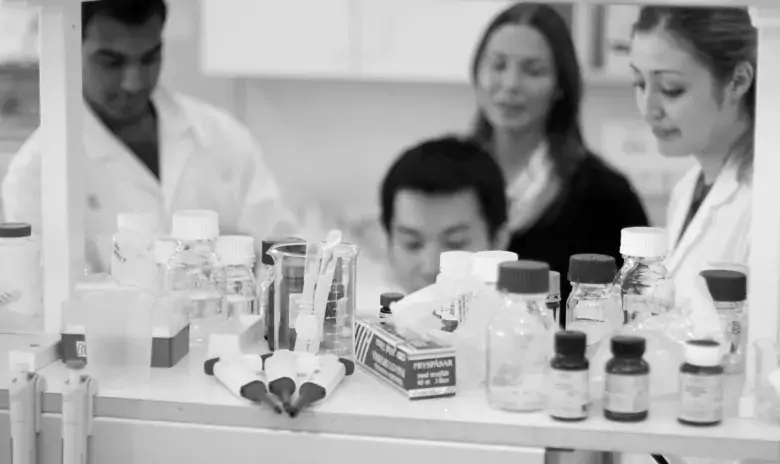
Department of Medicine, Huddinge
At the Department of Medicine, Huddinge (MedH) we conduct undergraduate and doctoral education and research within a wide range of medical fields, covering all internal medicine specialties, infectious diseases and dermatology. Our vision is to create tomorrow's knowledge through medical education and research at the highest international level.
Meet researchers at the Department of Medicine, Huddinge

Hoping to improve the care of patients with cardiac arrhythmias
Cardiac arrhythmias are common, can substantially impair quality of life, and may even prove fatal. Frieder Braunschweig is dedicated to improving the care for these patients, with a particular focus on remote home follow-up solutions.

Studying the microenvironment in which leukaemia cells grow
The greatest challenge facing current treatments of leukaemia is drug resistance. Hong Qian studies the microenvironment where the cancer cells are formed with the aim to find new treatment pathways.

Working to help people to adopt healthier lifestyles
Ill-health linked to sedentary lifestyles and poor diets is a growing problem. Ylva Trolle Lagerros develops apps designed to help people make more healthy everyday life choices.

Hunting down the genetics of serious liver disease
Fatty liver results from overweight and obesity and it is a common disease leading to cirrhosis and liver cancer. Stefano Romeo is investigating the genetic basis of the diseases to identify novel therapeutic strategies.

Studying inflammatory liver disease
Patients with primary sclerosing cholangitis (PSC) often develop liver failure and the risk of cancer is high. Annika Bergquist hopes her research will add to the understanding of the disease and lead to more efficacious treatment.

Maps the organs' own immune system
The immune system of individual organs may be something entirely different from the immune system that circulates the blood. Professor Niklas Björkström is conducting research into the immune system of, among other things, the liver and the uterus.

He is ranked as the world’s fourth most cited and productive researcher in COVID-19 and immune response
Marcus Buggert, Docent at the Center for Infectious Medicine (CIM) at the Department of Medicine, Huddinge, is ranked as the world’s fourth most cited and productive researcher in the field of COVID-19 and the immune response.

Previously unknown immune cells provide clues to IBD and asthma
Professor Jenny Mjösberg researches innate lymphoid cells (ILCs), a previously unknown part of the immune system. She wants to understand the part they play in different kinds of inflammatory disease, and ultimately contribute to new, improved therapies.

The Conversation: Could the common cold give children immunity against COVID?
Annika Karlsson at the Department of Laboratory Medicine (Labmed) and Marion Humbert at the Department of Medicine, Huddinge (MedH) have written an interesting article for The Conversation about why children are less likely to become severely ill with COVID compared with adults.

Her aim is to understand the pathogenic mechanisms of type 1 diabetes
The idea that type 1 diabetes is caused by a virus is an old hypothesis that has recently been revived. Professor Malin Flodström Tullberg researches on the link between enteroviruses and type 1 diabetes. She also hopes to be able to contribute to a new enterovirus vaccine
